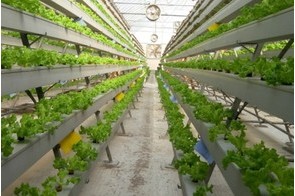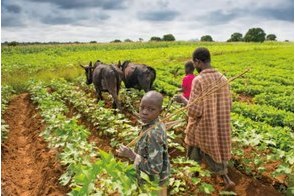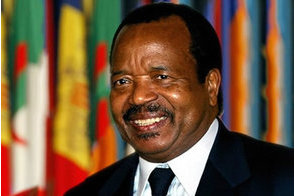UN agency IFAD evaluates benefits of country offices in Africa

Summary
IFAD currently has 20 country offices in Africa, including a special regional service centre, based in Kenya.
United Nations International Fund for Agricultural Development (IFAD) is scheduled to examine its decentralisation programme whereby IFAD hosts country offices and directly recruits and employs national staff to run its administrative and financial operations in the countries where it finances projects.
IFAD is the United Nations agency that invests in rural people to reduce poverty and increase food security. According to a statement issued on Monday by the agency, government representatives and agricultural development specialists will gather at a workshop in Nairobi, Kenya, on June 13-14, to evaluate the progress of the decentralisation programme.
The Nairobi event is one of the four regional workshops being organised by IFAD’s Independent Office of Evaluation (IOE). IOE conducts evaluations of IFAD-financed operations to promote accountability and learning.
The Rome-headquartered IFAD began its decentralisation programme in 2003 and now has 40 country offices worldwide. IFAD currently has 20 country offices in Africa, including a special regional service centre for Eastern and South Africa including the Indian Ocean island states, based in Kenya. The workshop in Nairobi will focus on IFAD-funded operations in eastern, southern, western and central Africa.
“On the basis of the emerging findings of the evaluation, IFAD will be able to strengthen its development effectiveness on the ground and play a more effective role in the countries where it works, strengthening results and impact for project beneficiaries, and building local capacities for conducting its operations,” said Oscar A. Garcia, Director of IOE.
The IFAD statement said previous independent evaluations of its operations found that IFAD’s country presence has allowed the organisation to be closer to projects and programmes, has given it more visibility and has enabled it to draw on local expertise and talent. Investing in country offices has paid off in terms of both efficiency and effectiveness. For instance, benefits have been realised in the in-country programme development and implementation support, partnership-building, policy dialogue, knowledge management, and innovation.
The evaluation will aim to answer key questions such as: What is the relevance of decentralisation to national ownership and direction of development assistance? To what extent has decentralisation contributed to achieving development results? What contribution did the decentralisation of administrative and financial business processes make to efficiency?
“The importance of this corporate-level evaluation cannot be overstated,” said Périn Saint Ange, IFAD’s Associate Vice-President. “By understanding what has and has not worked in our decentralisation process, we will be able to improve our individual country operations and, ultimately, be more effective in improving the lives of the rural people with whom we work.”
Since the Fund was established in 1979, IFAD has financed 188 agriculture projects and development programmes in East and Southern Africa at a total investment value of $3.4 billion. In West and Central Africa, IFAD has supported 221 projects in the region with $3.1 billion in financing.
Related
-
Modern sustainable farming techniques
We must not forget that over 60 million African children under five years are not growing properly.
-
Why contract farming is necessary in Nigeria
More food processing companies in Nigeria should be encouraged to enter into partnership agreements with smallholders.
-
Cameroon to boost agriculture, infrastructure, income with AfDB loan
The AfDB financing will support Cameroon’s Agricultural Value Chain Development Project.







